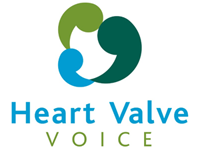Materials
QUICK LINKS
Heart Valve Disease
QUICK LINKS
Consultation Guide
If you’ve been diagnosed with heart disease, there are key questions that you should be included in your discussion with your valve disease team during your next appointment.
These questions help ensure that you and your clinician have a productive conversation so that you are confident that decisions are shared.
Specific valve disease appointments:
Disease Specific Questions:
Materials
QUICK LINKS
Heart Valve Disease
QUICK LINKS



